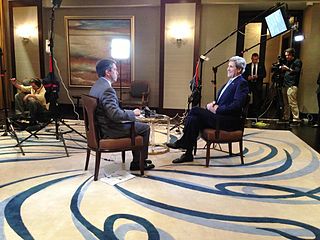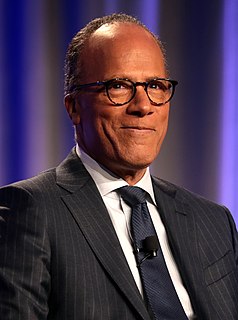Top 1200 Military-Industrial Quotes & Sayings
Explore popular Military-Industrial quotes.
Last updated on December 3, 2024.
Despite the dazzling successes of modern technology and the unprecedented power of modern military systems, they suffer from a common and catastrophic fault. While providing us with a bountiful supply of food, with great industrial plants, with high-speed transportation, and with military weapons of unprecedented power, they threaten our very survival.
Over the past 20 years, I have noticed that the most flexible, dynamic, inquisitive minds among my students have been industrial design majors. Industrial designers are bracingly free of ideology and cant. The industrial designer is trained to be a clear-eyed observer of the commercial world - which, like it or not, is modern reality.
Meanwhile, the U.S. debt remains, as it has been since 1790, a war debt; the United States continues to spend more on its military than do all other nations on earth put together, and military expenditures are not only the basis of the government's industrial policy; they also take up such a huge proportion of the budget that by many estimations, were it not for them, the United States would not run a deficit at all.
The dustbin of history is littered with remains of those countries that relied on diplomacy to secure their freedom. We must never forget . . . in the final analysis . . . that it is our military, industrial and economic strength that offers the best guarantee of peace for America in times of danger.
Industrial jobs are disappearing, and they will continue to disappear owing to productivity gains from automation. Thus, social models that were created to fit industrial and early service economies will no longer be viable. As the industrial workforce shrinks, the social model founded on it will go, too.
Every democracy must involve civil society in the process of establishing budgets, and all sectors of society must be consulted to determine what the real priorities of the population are. Lobbies, including military contractors and other representatives of the military-industrial complex, must not be allowed to hijack these priorities to the detriment of the population's real needs.
Bernie's campaign was very principled in most regards, I think, you know, he certainly didn't go far enough in questioning the military policy, the military-industrial complex, and so on, but you know I think that's the price you pay for being in the Democratic Party. And Bernie [Sanders] has to pay that price.
Welfarism and excessive spending and deficits and socialism divide us, because everybody has to go to Washington. Those who have the biggest clout, whose who are the best lobbyists, those who go and they grab. And whether it's the medical industrial complex, or the banking industry, or the military industrial complex, that's who ends up controlling our government...
Totalitarianism extends to whatever touches it...psychological technique, as it operates in the army or in a great industrial plant, entails a direct action on the family. It involves a psychological adaptation of family life to military or industrial methods, supervision of family life, and training family life for military or industrial service. Technique can leave nothing untouched in a civilization. Everything is its concern. Technique, which is destroying all other civilizations, is more than a simple mechanism: it's a whole civilization in itself.
Let me be clear: I'm a believer in a robust military, which is essential for backing up diplomacy. But the implication is that we need a balanced tool chest of diplomatic and military tools alike. Instead, we have a billionaire military and a pauper diplomacy. The U.S. military now has more people in its marching bands than the State Department has in its foreign service - and that's preposterous.
I saw that publishing all over the world was deeply constrained by self-censorship, economics and political censorship, while the military-industrial complex was growing at a tremendous rate, and the amount of information that it was collecting about all of us vastly exceeded the public imagination.
In the councils of government, we must guard against the acquisition of unwarranted influence, whether sought or unsought, by the military industrial complex. The potential for the disastrous rise of misplaced power exists and will persist. We must never let the weight of this combination endanger our liberties or democratic processes. We should take nothing for granted. Only an alert and knowledgeable citizenry can compel the proper meshing of the huge industrial and military machinery of defense with our peaceful methods and goals, so that security and liberty may prosper together.
However, if we leave the industrial machinery and their energy-distribution networks and leave them also all the people who have routine jobs operating the industrial machinery and distributing its products, and we take away from all the industrial countries all their ideologies and all the politicians and political machine workers, people would keep right on eating. Possibly getting on a little better than before.
No president, not the smartest, best human being in the world can do it alone. You cannot take on this, the power that is in Washington, to billionaires and lobbyist, the military industrial complex, all of this money and power, you can`t do it. You need a mass movement of American who are looking in congress and we say directly.
The issue is not about raising taxes. The issue is, how do we allocate the wealth that we have? We spend trillions of dollars on a military industrial complex. The United States accounts for 38% of all the military armaments produced in the world. 38%. This is a huge amount of money. People want and need services. They want roads, they want healthcare.


















































